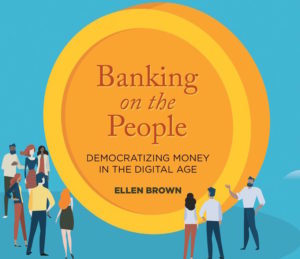Poverty Damages the Mind
There is a strong connection between scarce resources and cognition: The more a person struggles financially, the less he or she can channel brain processes to completing other tasks. When you can't make ends meet, the weight of worry occupies a large portion of the mind.
There is a strong connection between scarce resources and cognition: The more a person struggles financially, the less he or she can channel brain processes to completing other tasks. When you can’t make ends meet, the weight of worry occupies a large portion of the mind.
This doesn’t just mean those who suffer due to poverty are just stressed but rather, incapable of dedicating themselves to other endeavors because their mind is so fully engrossed in finding ways to survive. It goes beyond the ability to pay bills, and stretches out to other important everyday responsibilities, such as parenting, going to night school or even remembering to take prescribed medicine.
The science is quite simple, according to a study developed by researchers at Harvard, Princeton and the University of Warwick. People with lower incomes are distracted by financial concerns that take up valuable space in their brain’s “bandwidth,” so to speak. There is only so much available bandwidth a human being has access to at any given moment. When the bandwidth is on overload, it cannot perform at optimal levels. The results that poverty has on the mind are the equivalent of chronic alcoholism, or losing 13 IQ points. An article in The Atlantic Cities explains one of the experiments and analyzes the social significance of the research:
The finding further undercuts the theory that poor people, through inherent weakness, are responsible for their own poverty – or that they ought to be able to lift themselves out of it with enough effort. This research suggests that the reality of poverty actually makes it harder to execute fundamental life skills. Being poor means, as the authors write, “coping with not just a shortfall of money, but also with a concurrent shortfall of cognitive resources.”
“It’s the same bandwidth,” says Princeton’s Eldar Shafir, one of the authors of the study alongside Anandi Mani, Sendhil Mullainathan, and Jiaying Zhao. Poor people live in a constant state of scarcity (in this case, scarce mental bandwidth), a debilitating environment that Shafir and Mullainathan describe in a book to be published next week, Scarcity: Why having too little means so much.
…This picture of cognitive bandwidth looks different. To study it, the researchers performed two sets of experiments. In the first, about 400 randomly chosen people in a New Jersey mall were asked how they would respond to a scenario where their car required either $150 or $1,500 in repairs. Would they pay for the work in full, take out of a loan, or put off the repair? How would they make that decision? The subjects varied in annual income from $20,000 to $70,000.
Before responding, the subjects were given a series of common tests (identifying sequences of shapes and numbers, for example) measuring cognitive function and fluid intelligence. In the easier scenario, where the hypothetical repair cost only $150, subjects classified as “poor” and “rich” performed equally well on these tests. But the “poor” subjects performed noticeably worse in the $1,500 scenario. Simply asking these people to think about financial problems taxed their mental bandwidth.
“And these are not people in abject poverty,” Shafir says. “These are regular folks going to the mall that day.”
The “rich” subjects in the study experienced no such difficulty.
These findings highlight the importance of social programs that fight poverty. But the results of the research don’t apply only to those living below the poverty line. As writer Emily Badger explains in the article, “at the macro level, this means we lost an enormous amount of cognitive ability during the recession.”
Researchers worry that some may still choose to blame “poor people” and their lack of IQ, rather than realize the data proves that it is not about this, but rather “about people who happen to be in poverty.” It’s not the person, but the context, Shafir argues.
And the context since 2008 has been nothing short of dismal for many.
—Posted by Natasha Hakimi
Your support is crucial...As we navigate an uncertain 2025, with a new administration questioning press freedoms, the risks are clear: our ability to report freely is under threat.
Your tax-deductible donation enables us to dig deeper, delivering fearless investigative reporting and analysis that exposes the reality beneath the headlines — without compromise.
Now is the time to take action. Stand with our courageous journalists. Donate today to protect a free press, uphold democracy and uncover the stories that need to be told.







You need to be a supporter to comment.
There are currently no responses to this article.
Be the first to respond.